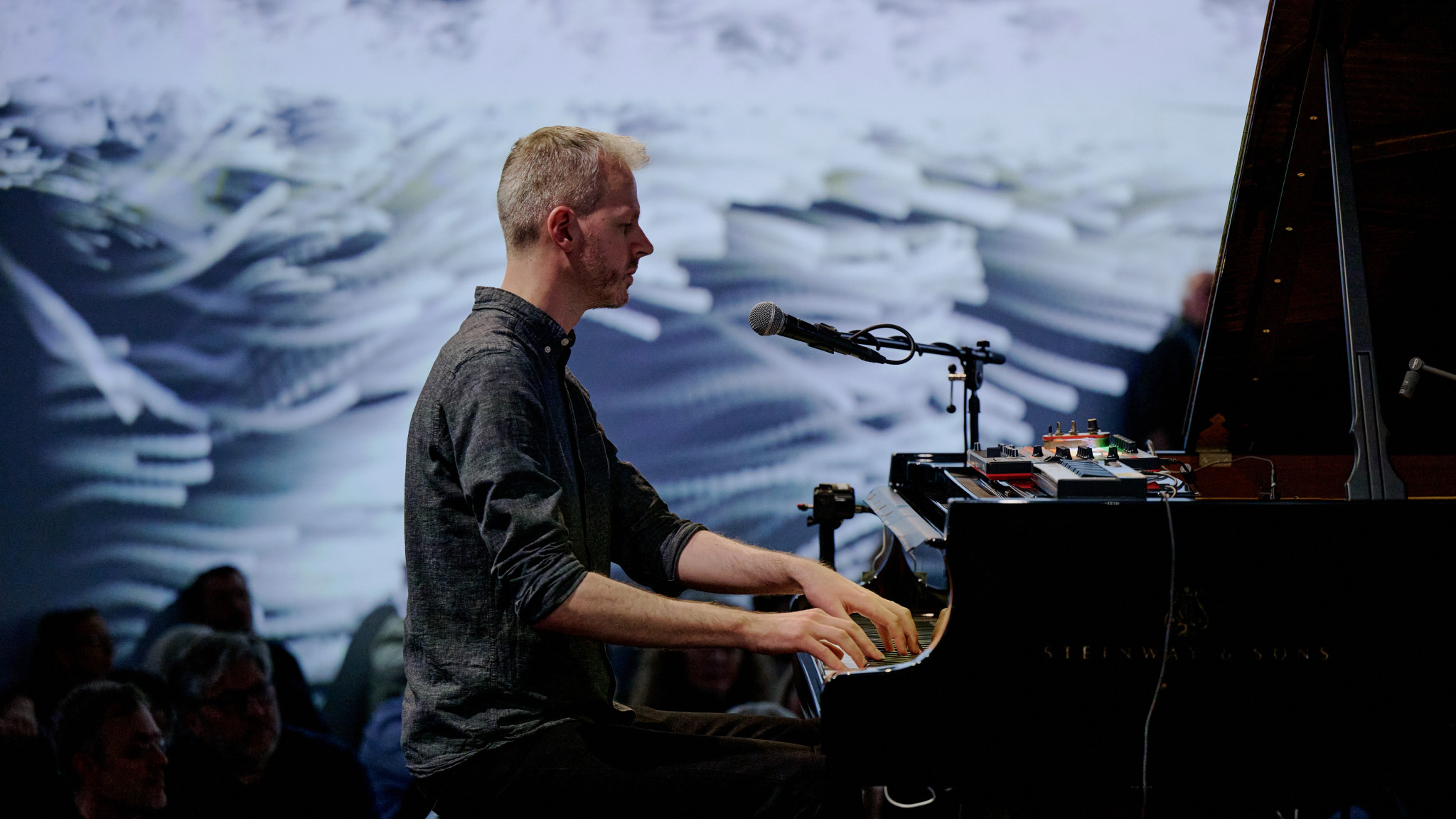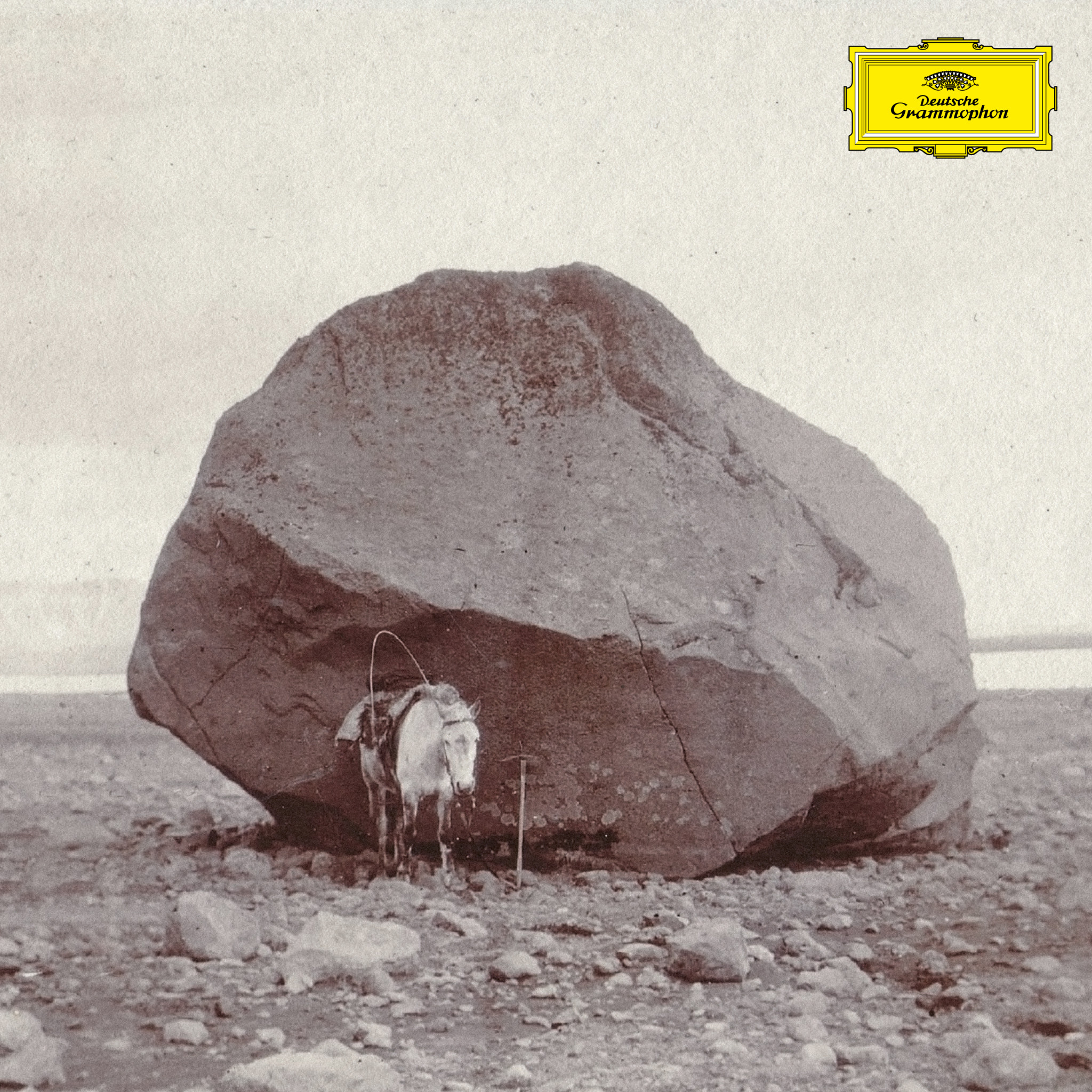Icelandic composer and producer Snorri Hallgrímsson is well-known for his emotive string and piano arrangements, vocal performances that draw on his choral background, and his subtle interweaving of electronics and other musical elements. Since the release of his debut solo album, Orbit (2018), his music has touched hearts around the world, and he has followed up with a BAFTA-award winning score for Broadchurch alongside Ólafur Arnalds, the double EP Landbrot, and a second full-length called I Am Weary, Don’t Let Me Rest (2023) that received three nominations at the Icelandic Music Awards and won an award for Production of the Year.
We caught up with Snorri in Berlin to talk about his debut Deutsche Grammophon release, Longer shadows, softer stones, his live performance for the Yellow Lounge concert series, and his creative process…
What is the genesis of your latest EP, Longer shadows, softer stones
“It started when I was invited onto a three-week residency in Nantes, France. I had this perfect studio set-up and a ten-minute daily commute that was usually full of sunshine. It was bliss. I was just there to create and didn’t even have to deliver anything by the end of it. That’s where the opening track, “Three Week Cloud,” came from. It’s the only vocal track and the essence of the whole EP for me. My vocals are like the eponymous cloud in that song, which is an open invitation to let me carry you through the rest of the album. I didn’t know how the rest of it would be at that point. I just knew I was in a very blissful state of mind that could help carry myself and the listener through any darker moments. Then the project was shelved for a while and I finished it during an Icelandic winter, with a completely different mindset. So it represents a couple of different places and mindsets, some more hopeful and others more pessimistic, but hopefully it balances out overall.”
Your compositions are often multi-layered with different instruments, samples, sometimes vocals. How do you manage to pull all these things together?
“I studied classical guitar in my childhood but didn’t want to spend my life on a single instrument, so I deliberately decided to learn a lot of different things—none of them particularly well. Earlier in my life I struggled a bit with this idea of being a jack of all trades, master of none and still feel some imposter syndrome now and again. But now I am okay with it because it’s better than doing just one thing, or the same thing over and over again. I try to use it to my advantage in bringing all the elements together. Ideally, the starting point is different each time because that leads to different results but I wouldn't say I have a preferred method apart from just combining everything. I like to get out of my comfort zone, pick up new ideas and bring them back to the studio and try to get them all working together.”
You’ve been playing live shows recently. Is this a new thing for you?
“Playing live is something I am starting to do more and more. I had a bit of a mental block at the beginning, in terms of envisioning how it would all work. A lot of my music, as you said, has multiple elements: several pianos, electronic beats, string orchestras, solos, vocals… and I had a hard time hearing how it could work, especially within a budget for one musician to be on stage. So this summer I spent a month thinking about how it could work for my upcoming tour this fall. I created a simple setup—just a piano, my voice, a tiny midi keyboard with my own sampled instruments, and a midi controller for controlled playback. I needed to make it all work in a way where I feel good about it so there is no click track as I have had in the past. I wanted to feel free and take my time, and to leave space for improvisation. I also do some live looping with my virtual instruments while I play piano, so it’s organic and doesn’t feel like the same show each time.”
You have also made a song for the latest Winter Calm series, called “Despair, Light”. Hope and despair seem to play a big role in your life and your music…
“I think that as an artist or creative, a life that I chose, there is a duty to take on what is happening in the world. We should take on those feelings and then we need hope to be able to act on them in a way that’s useful. Hope gets us off the couch and talking to people around us. That might lead us to a demonstration or just finding strength in our community.I talk about despair a lot because I need it to see the light, and vice versa. It is a struggle a lot of the time but it’s important. In a way, the lows get lower but the highs get higher, so the emotional range is enhanced overall. When I first started to deal with depression, I would feel guilty if I laughed during a time when I was supposed to be feeling depressed. But now I understand that it’s a range; you’re not only ever completely happy or depressed, there’s lots in between. And if you are having an awful day, you can always make better decisions for your mental health tomorrow.”
Words by Paul Sullivan


